- Home
- Sarah Woodbury
Prince of Time (Book Two in the After Cilmeri series)
Prince of Time (Book Two in the After Cilmeri series) Read online
Book Two in the After Cilmeri Series
Prince of Time
by
Sarah Woodbury
Smashwords Edition
Copyright 2011 by Sarah Woodbury
Cover image by Christine DeMaio-Rice at Flip City books
http://flipcitybooks.com/
Two teenagers are catapulted back in time to alter history and save the medieval kingdom of Wales …
David and his man-at-arms, Ieuan, find themselves alone and on the run from a company of English soldiers who’ve sworn vengeance for the recent death of their king. Meanwhile, Llywelyn lays on his deathbed, wounded by a traitor’s arrow. And once again, it is David and Anna, and all that they represent, that holds the key to the survival of Wales.
Books in the After Cilmeri Series:
Daughter of Time (prequel)
Footsteps in Time (Book One)
Winds of Time
Prince of Time (Book Two)
Crossroads in Time (Book Three)
The Gareth and Gwen Medieval Mysteries:
The Bard’s Daughter
The Good Knight
The Uninvited Guest
The Last Pendragon Saga:
The Last Pendragon
The Pendragon’s Quest
Other books by Sarah Woodbury:
Cold My Heart: A Novel of King Arthur
www.sarahwoodbury.com
A Brief Guide to Welsh Pronunciation
c a hard ‘c’ sound (Cadfael)
ch a non-English sound as in Scottish "ch" in "loch” (Fychan)
dd a buzzy ‘th’ sound, as in “there” (Ddu; Gwynedd)
f as in “of” (Cadfael)
ff as in “off” (Gruffydd)
g a hard ‘g’ sound, as in “gas” (Goronwy)
l as in "lamp" (Llywelyn)
ll a breathy “th” sound that does not occur in English (Llywelyn)
rh a breathy mix between ‘r’ and ‘rh’ that does not occur in English (Rhys)
th a softer sound than for ‘dd,’ as in "thick” (Arthur)
u a short ‘ih’ sound (Gruffydd), or a long ‘ee’ sound (Cymru—pronounced “kumree”)
w as a consonant, it’s an English ‘w’ (Llywelyn); as a vowel, an ‘oo’ sound (Bwlch)
y the only letter in which Welsh is not phonetic. It can be an ‘ih’ sound, as in “Gwyn,” is often an “uh” sound (Cymru), and at the end of the word is an “ee” sound (thus, both Cymru—the modern word for Wales—and Cymry—the word for Wales in the Dark Ages—are pronounced “kumree”)
City of Chester
28 June 1285
Humphrey de Bohun
Third Earl of Hereford
I stalked toward Edward’s quarters. Stalked. My wife tells me I stalk when I’m angry, like a caged lion or trained bear at a village fair. I don’t agree. I don’t get angry. Anger is dangerous. Anger implies a loss of control that I can’t allow myself, not when so much depends on measured thought and careful planning. Edward would agree. Though I despise the man for his cunning and his power over me, cold calculation is more his style and it’s a style I have endeavored to emulate.
Idiots! To bungle the siege so badly as to call my leadership of the Marcher lords into question! To have Edward call me into his presence for an accounting!
I pushed open the door into King Edward’s rooms and stalked the twenty feet to the dais, before bowing. “You summoned me, sire?” I asked.
Edward sat, an elbow bent on the arms of his chair, his hands steepled in front of his mouth. He was in his mid-forties, ten years my senior, but still a vibrant man, with a full head of dark hair and a straight back, showing no signs of either a slower mind or body. There was a pause as he left me hanging, waiting for his response, trying not to feel as awkward as one always felt in the royal presence.
“Tell me of Builth Castle,” he said, as if discussing the disposition of a minor estate.
“Prince Llywelyn came behind us with several hundred men. We couldn’t maintain the siege and had to quit Wales. We have retreated to Huntington.”
“Your assumption was that if you took the castle, I would take it as a fait accompli and allow you to keep it,” Edward said.
Yes. I bowed again. “I apologize, my lord. I believed I was acting in England’s best interests.” Damn the man! Why couldn’t he be as malleable as his father? I must remember in future that when I challenge you, I cannot think as my father or grandfather did; you are a different kind of king; you do not respect the old boundaries and honors.
“Did you now?” Edward asked. “Had you taken it, I would have had to act in England’s best interests and give it to Edmund Mortimer who has prior claim.”
And who has never fought against you as I have. I learned at Evesham that there is no such thing as honor, no such thing as right or wrong. Only victory matters. You taught me that day to think as you do: no mercy for one’s enemies and hardly any loyalty to one’s friends. There can be no chinks in one’s armor. A sword can find a weak point, even if by chance, and thrust home. Power is fleeting, drained out as my father’s blood soaked the ground around him, dead on your orders. I was only sixteen when my father died at Evesham. The bitter taste of that has stayed with me ever since.
Edward continued speaking. “I realize that you and your forefathers have treated the Marche as a child’s toy that is yours and yours alone, but you may recall a conversation we had earlier in which I explained that I expected to be notified, in advance, of any major offenses into Wales.”
“I misunderstood, my lord,” I said. “I intended no slight to your person.”
“I can’t have your activities endangering my plans for Wales. Peckham has requested a meeting between us and the upstart Welsh in Lancaster in August. I have acquiesced, and I expect you there as witness.”
“You intend to acknowledge them?” I asked, surprised.
“No.” Edward looked at me coldly. “But until then, you will keep to your possessions.” He paused, and I studied him carefully. There was something else there, something uncharacteristic of him that I’d not seen in his face before. Glee? “You may hold your men in readiness,” he continued. “After Lancaster...then we will see.”
Cast of Characters
The Welsh
David ap Llywelyn—Prince of Wales
Ieuan ap Cynan—Welsh knight, one of David ap Llywelyn’s men
Llywelyn ap Gruffydd—Prince of Wales, David’s father
Marged—Princess of Wales, David and Anna’s mother
Anna—David’s half-sister
Mathonwy ap Rhys—Anna’s husband; nephew to Llywelyn
Lili—Ieuan’s sister
Aaron ben Simon—Physician; Jewish émigré to Wales
Bevyn—Welsh knight, Captain of David’s guard
The Americans
Bronwen Llywelyn—Archaeology graduate student
Elisa Shepherd—David’s aunt (Marged’s sister)
Ted Shepherd—Elisa’s husband
Christopher Shepherd—Elisa and Ted’s son; David’s cousin
The English
Edward I (deceased)—King of England
Sir John de Falkes—Castellan of Carlisle Castle
Thomas Hartley—Falkes’ nephew
Humphrey de Bohun—Earl of Hereford
John Peckham—Archbishop of Canterbury
Chapter One
2 August 1285
David
Ieuan hung over the side off the boat, heaving his guts out. No doubt he’d long since stopped caring if anyone saw him, but hoped now that I would change my mind, turn this God-forsaken buc
ket around, and head for Wales.
I watched from the cabin doorway as Aaron, my friend and physician, stepped beside him. “Only another few hours, Ieuan. The captain says we’ll reach port long before dark.”
“But when is dark in this land?” Ieuan moaned, resting his head on the rail of the boat. “It stays light for hours longer than it should.”
As a matter of fact, from my position I could see our destination. The Irish Sea was fickle at the best of times, but in this case, I assumed we would reach port as the captain promised.
Aaron patted him on the shoulder and continued towards my cabin. “I gave Ieuan one of my remedies,” he said when he reached me, “but his stomach dispensed with it before it had time to take effect.”
I debated whether to go to Ieuan, but decided he’d prefer that I didn’t. He was proud, and for his lord to hold his head while he upended his innards over the side of the boat was probably not what he wanted. Quite naturally too, under the circumstances, Ieuan was exaggerating about the light. It wasn’t as if southern Scotland were in the arctic and Wales in the tropics. Still, at this latitude and longitude (which admittedly hadn’t been discovered yet) we could expect to see the sun for nearly sixteen hours a day, which meant that it wasn’t full dark until ten in the evening, and it started to get light before five. Unless it was raining, of course, in which case it was dark all day and I had the dark moods of my men as well as the dark skies to contend with. Fortunately, at the moment the sky was free of clouds.
We docked a few hours later near the town of Annan in Scotland, northwest of the English city of Carlisle.
“Why here?” Ieuan asked Aaron, but as I’d instructed, Aaron looked blankly at him and said that when and if Prince Dafydd chose to tell him, he would know the reason. My men were used to following orders, but in recent weeks I’d entrusted Ieuan with more responsibility. Bevyn was getting older and he and I agreed that Ieuan should take his place as my first captain when the time came. Ieuan was young, in his mid-twenties, but smart—clever even—and the other men respected him.
As we docked, I emerged from my cabin in cloak and boots I’d borrowed from one of my men who shared my height. The clothes were plainer than any I’d worn since I’d become a Prince of Wales two and a half years before. In keeping with my disguise, I didn’t wear my mail, but instead wore heavy leather armor under a plain, brown cloak. I could have been a third son of a minor house, which was my intent.
My men were either on shore already or crowded onto the deck of the boat when I came out, and they stared at me, surprise showing on their faces. I knew, then, that I’d made the right decision to send Sir Nicholas de Carew home ahead of me in a different boat. He would have counseled against what I was about to do.
I gazed back at my men and smiled, feeling light-hearted and free for the first time in many months. “Aaron and Ieuan, with me,” I said. “The rest of you must stay here.”
I strode towards the gangplank. Before I reached it, Bevyn blocked my path and tried once again to dissuade me. “My lord,” he said. “You know this is unwise.”
“I know it,” I said. “But more unwise would be riding with a dozen men through the English countryside. Three are less noticeable, quicker, and more able to outrun any attackers.”
“That was not what I meant,” Bevyn growled. “This entire expedition is ill-advised. I do not like it.”
I rested my right hand on Bevyn’s shoulder. “I have a vision for Wales, Bevyn,” I said. “What comes next is part of it.”
Bevyn bowed his head and gave way, but grasped Ieuan’s arm as he passed him. “You understand your charge, man? What I will do to you if anything happens to him?”
My impulse was to interfere but I didn’t. Bevyn would give his life for me. He expected the same of Ieuan. Ieuan nodded and Bevyn released him.
I stepped off the boat, relieved to feel soil under my boots at last. Three horses waited for us and I mounted mine, Bedwyr. Cadwallon, acting as groom, boosted Aaron onto his mare, and then brought Ieuan his Llwyd, “Grey”, named not very creatively by his little sister.
“You know that I agree with Bevyn,” Aaron said. “Are you sure this journey is necessary?”
“I’m loath to leave bits and pieces of the twenty-first century lying around unattended,” I said, keeping my voice low so Ieuan couldn’t overhear. “I wouldn’t want them to fall into the wrong hands—or anyone’s hands. They’re too distinctive and remarkable. You’ll see what I mean when we find them.”
“Yes, my lord,” Aaron acquiesced.
We rode away from the boats and left the town behind us. It was time to tell Ieuan something, and I weighed how much he could handle. “You’ve seen the vehicle, of course,” I said.
“Yes,” Ieuan said. “It came from the lands of Madoc the explorer.”
Aaron breathed in through his nose and let the breath out. As it had Aaron, Ieuan’s statement set me back a pace. It was an explanation for our presence in Wales that my father had latched upon a month ago which seemed to satisfy everyone. No mention of time travel was necessary if we could explain twenty-first century technology as simply being from a more advanced civilization.
“The Prince and his mother brought more from that land,” Aaron said. “More possessions that they’ve had to hide, lest others brand them witches.”
“It does take very little to arouse the passions of the people,” Ieuan said carefully. “Or the priests.”
Aaron’s mouth twitched. “So you understand the problem,” he said. “But do others see as clearly? What of Princess Marged? When others become jealous of another’s talents, they can fall back on suspicion and superstition. Even had she raised our Prince in this country, she is still a most unusual woman. How much more so if she possessed...unusual artifacts.”
“What kind of artifacts?” Ieuan asked, ever the pragmatic thinker.
I leaned forward so I could see Ieuan across Aaron’s mount. “If they’re where she left them, I’ll tell you. If others have discovered them before us, then there’s no need for me to explain just yet. Suffice to say they are of metals and quality that you’ve never seen, nor will ever see again, I dare say.”
“Even were you to take me to Madoc’s land?” Ieuan asked.
“I don’t want to imagine the circumstances under which I would be forced to take you there. I hope never to see it again. I’m afraid if we went there, we’d find it difficult to return.”
“You’ve traveled that distance once,” Ieuan countered.
“And I dare not risk it a second time,” I said. “Come. We have some way to ride before nightfall. Aaron thinks it’s at least twenty miles to our destination. We have a few hours before full dark and I want to have ridden past Carlisle before we rest.”
“Can you at least tell me where we’re going?” Ieuan asked.
“To the great wall built by Hadrian,” I answered, and then spurred Bedwyr forward. These questions are so difficult. The longer I lived in Wales, the easier to pretend that the twenty-first century was impossibly far in the future. On the outside, I was nothing more or less than a prince, the son of the Prince of Wales. I liked it that way—wanted it that way—but then the façade crashed down and I was left with a truth that only a handful of men from the thirteenth century knew. Aaron was one, and to open the circle to Ieuan was hard, even though I trusted him.
I was five strides ahead of Ieuan before he signaled Llwyd to catch up with me. I could almost hear him thinking: The Roman Wall? What could he want with it?
* * * * *
We chose to rest before it was fully dark, in a copse of trees that could hide us from prying eyes.
“How much farther?” I asked Aaron.
“If we rise at first light, we should reach the place in less than two hours.”
“Excellent,” I said.
Ieuan grumbled. “If I knew what we were doing, and how long it would take, it would make it easier to prepare for what I might have to defend you against,” h
e said.
“Just the English,” I said, clapping him on the shoulder. “As usual.”
“Oh, that’s just great,” he said, and turned away, but not before I caught him rolling his eyes at Aaron. Bevyn would have cuffed him but I ignored it. Better to ignore it. I want a thinking man more than one who merely obeys.
“I will take the first watch,” Aaron said. “I don’t sleep until after midnight under normal circumstances, much less on the ground with only my cloak for warmth.”
“Sorry, Aaron,” I said, feeling contrite. “I wanted you along for your knowledge, but didn’t think how uncomfortable it might be for you, out here under the open sky without a fire.”
“You’re allowed a brief lapse, every now and then,” Aaron said. “I’m here by my choice as well as yours. Don’t think on it further.”
I nodded, accepting as I often had to the sacrifices of those who surrounded me. Instead, I jerked my head at Ieuan. “Come,” I said. “We’ll sleep and let the old man keep his own counsel.” I threw myself on the ground, wrapped my cloak around me, and used my arm for a pillow. What I hadn’t admitted to anyone was my delight in being out in the open, with only Ieuan and Aaron for company. It felt great to run Bedwyr under the open sky with nothing more pressing on my mind for the next couple of days then picking up a few of my mom’s things.

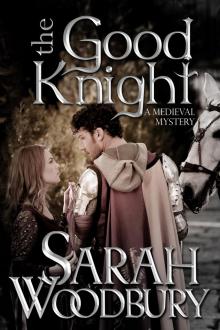 The Good Knight
The Good Knight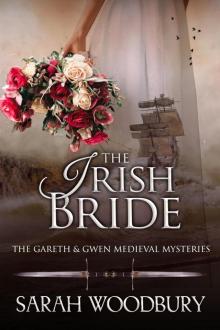 The Irish Bride
The Irish Bride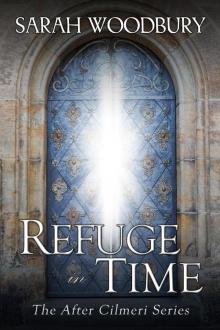 Refuge in Time
Refuge in Time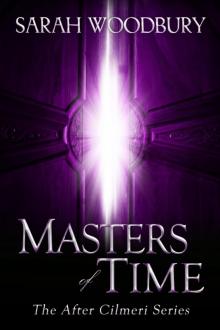 Masters of Time
Masters of Time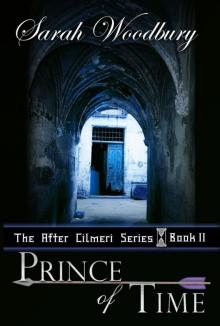 Prince of Time (Book Two in the After Cilmeri series)
Prince of Time (Book Two in the After Cilmeri series)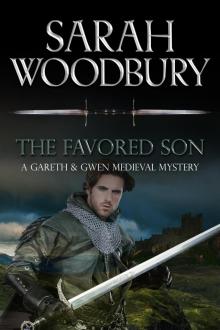 The Favored Son
The Favored Son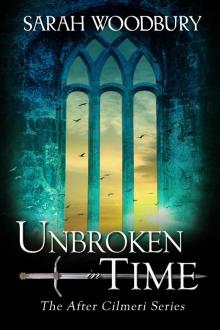 Unbroken in Time
Unbroken in Time![[The Lion of Wales 01.0] Cold My Heart Read online](http://i1.bookreadfree.com/i/03/22/the_lion_of_wales_01_0_cold_my_heart_preview.jpg) [The Lion of Wales 01.0] Cold My Heart
[The Lion of Wales 01.0] Cold My Heart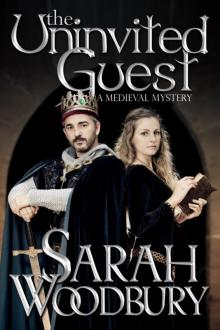 The Uninvited Guest
The Uninvited Guest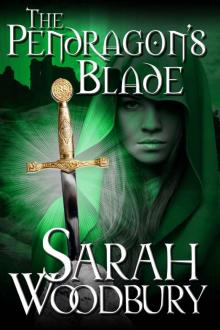 The Pendragon's Blade (The Last Pendragon Saga Book 2)
The Pendragon's Blade (The Last Pendragon Saga Book 2)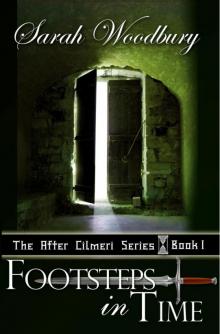 Footsteps in Time
Footsteps in Time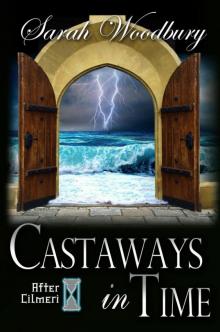 Castaways in Time (The After Cilmeri Series)
Castaways in Time (The After Cilmeri Series) Winds of Time
Winds of Time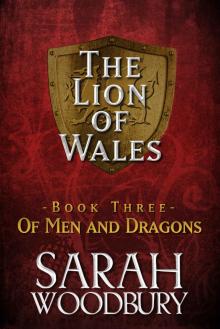 Of Men and Dragons (The Lion of Wales Book 3)
Of Men and Dragons (The Lion of Wales Book 3)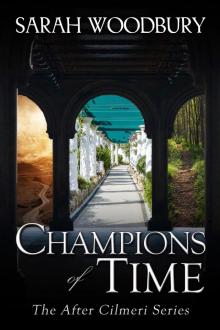 Champions of Time
Champions of Time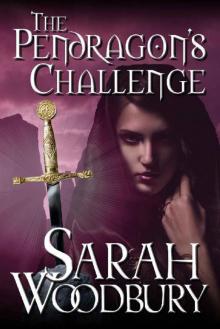 The Pendragon's Challenge (The Last Pendragon Saga Book 7)
The Pendragon's Challenge (The Last Pendragon Saga Book 7)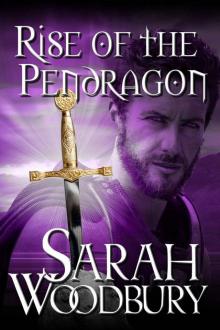 Rise of the Pendragon (The Last Pendragon Saga Book 6)
Rise of the Pendragon (The Last Pendragon Saga Book 6)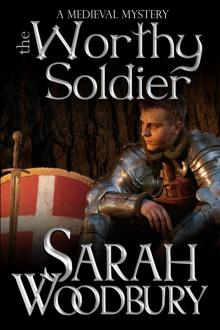 The Worthy Soldier
The Worthy Soldier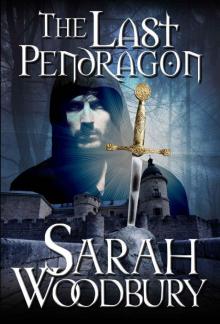 The Last Pendragon (The Last Pendragon Saga Book 1)
The Last Pendragon (The Last Pendragon Saga Book 1)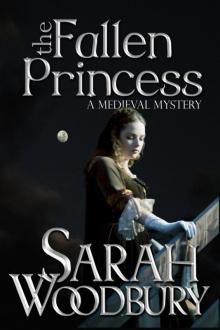 The Fallen Princess
The Fallen Princess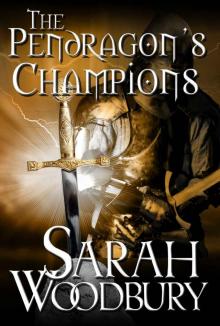 The Pendragon's Champions (The Last Pendragon Saga Book 5)
The Pendragon's Champions (The Last Pendragon Saga Book 5)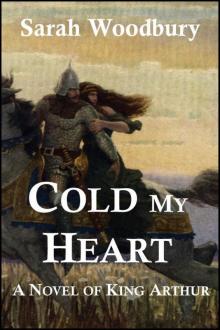 Cold My Heart: A Novel of King Arthur
Cold My Heart: A Novel of King Arthur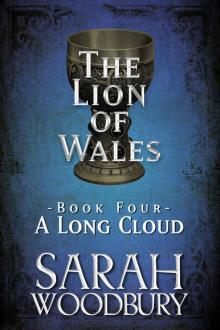 A Long Cloud (The Lion of Wales Book 4)
A Long Cloud (The Lion of Wales Book 4)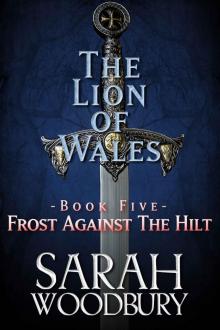 Frost Against the Hilt (The Lion of Wales Book 5)
Frost Against the Hilt (The Lion of Wales Book 5)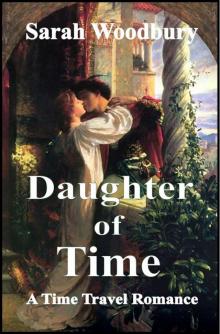 Daughter of Time: A Time Travel Romance
Daughter of Time: A Time Travel Romance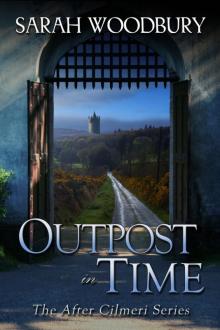 Outpost in Time
Outpost in Time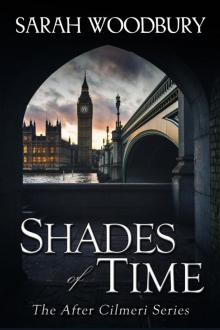 Shades of Time kobo
Shades of Time kobo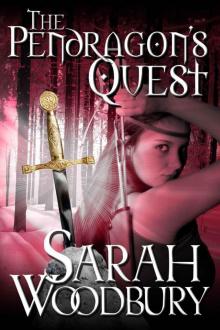 The Pendragon's Quest (The Last Pendragon Saga Book 4)
The Pendragon's Quest (The Last Pendragon Saga Book 4)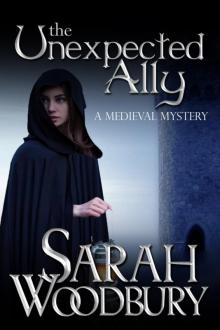 The Unexpected Ally
The Unexpected Ally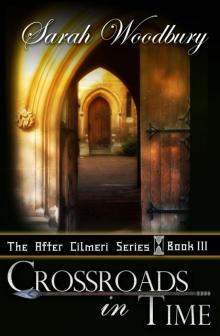 Crossroads in Time (The After Cilmeri Series)
Crossroads in Time (The After Cilmeri Series)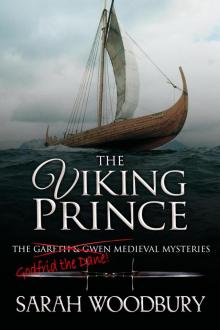 The Viking Prince
The Viking Prince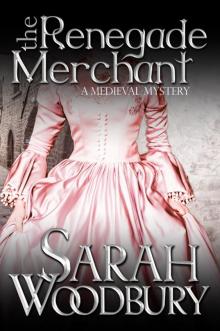 The Renegade Merchant
The Renegade Merchant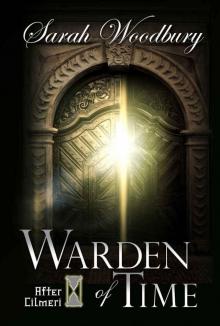 Warden of Time (The After Cilmeri Series Book 8)
Warden of Time (The After Cilmeri Series Book 8)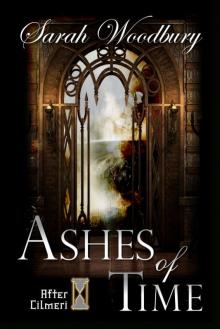 Ashes of Time (The After Cilmeri Series)
Ashes of Time (The After Cilmeri Series)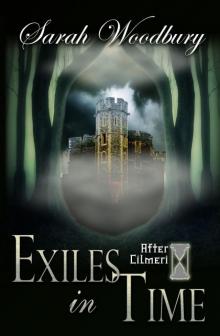 Exiles in Time (The After Cilmeri Series)
Exiles in Time (The After Cilmeri Series)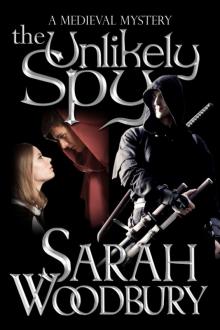 The Unlikely Spy
The Unlikely Spy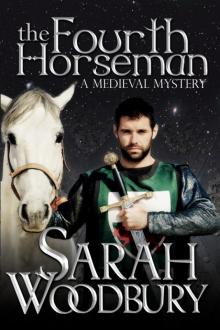 The Fourth Horseman
The Fourth Horseman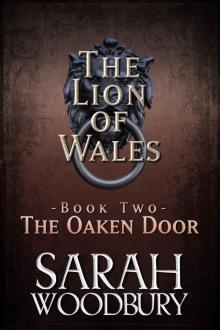 The Oaken Door (The Lion of Wales Book 2)
The Oaken Door (The Lion of Wales Book 2)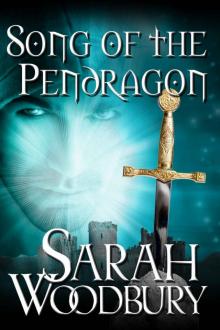 Song of the Pendragon (The Last Pendragon Saga Book 3)
Song of the Pendragon (The Last Pendragon Saga Book 3)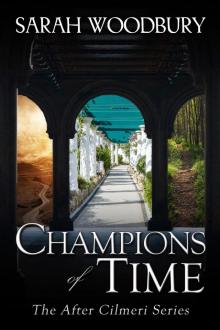 Champions of Time (The After Cilmeri Series, #13)
Champions of Time (The After Cilmeri Series, #13)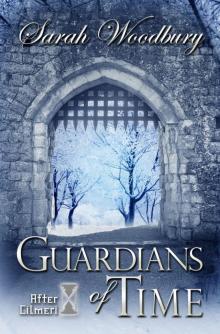 Guardians of Time
Guardians of Time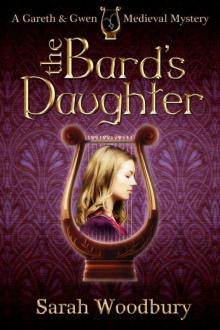 The Bard's Daughter (A Gareth and Gwen Medieval Mystery)
The Bard's Daughter (A Gareth and Gwen Medieval Mystery)